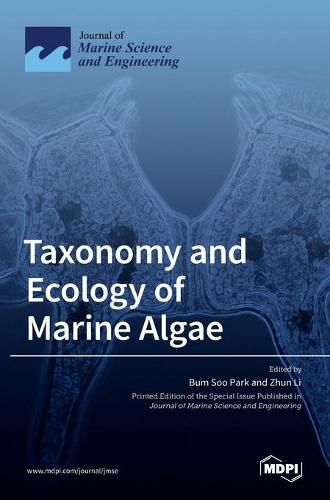Readings Newsletter
Become a Readings Member to make your shopping experience even easier.
Sign in or sign up for free!
You’re not far away from qualifying for FREE standard shipping within Australia
You’ve qualified for FREE standard shipping within Australia
The cart is loading…






This title is printed to order. This book may have been self-published. If so, we cannot guarantee the quality of the content. In the main most books will have gone through the editing process however some may not. We therefore suggest that you be aware of this before ordering this book. If in doubt check either the author or publisher’s details as we are unable to accept any returns unless they are faulty. Please contact us if you have any questions.
The term algae refers to a large diversity of unrelated phylogenetic entities, ranging from picoplanktonic cells to macroalgal kelps. Marine algae are an important primary producer in the marine food chain, responsible for the high primary production of coastal areas, providing food resources in situ for many grazing species of gastropods, peracarid crustaceans, sea urchins or fish. Recent findings indicate that marine environments have rapidly changed due to global warming over the past several decades. This change has led to significant variations in marine algal ecology. For example, a long-term increase in ocean temperatures due to global warming has facilitated the intensification of harmful algal blooms, which adversely impact public health, aquatic organisms, and aquaculture industries. Thus, extensive studies have been conducted, but there is still a gap in our understanding of the variation in their ecology in accordance with future marine environmental changes. To fill this gap, studies on the taxonomy and ecology of marine algae are highly necessary.
We have invited algologists to submit research articles that enable us to advance our understanding of the taxonomy and ecology of marine algae. Fourteen papers have been collected so far, which cover different aspects of the taxonomy and ecology of marine algae, including understudied species, interspecific comparisons, and new techniques.
$9.00 standard shipping within Australia
FREE standard shipping within Australia for orders over $100.00
Express & International shipping calculated at checkout
This title is printed to order. This book may have been self-published. If so, we cannot guarantee the quality of the content. In the main most books will have gone through the editing process however some may not. We therefore suggest that you be aware of this before ordering this book. If in doubt check either the author or publisher’s details as we are unable to accept any returns unless they are faulty. Please contact us if you have any questions.
The term algae refers to a large diversity of unrelated phylogenetic entities, ranging from picoplanktonic cells to macroalgal kelps. Marine algae are an important primary producer in the marine food chain, responsible for the high primary production of coastal areas, providing food resources in situ for many grazing species of gastropods, peracarid crustaceans, sea urchins or fish. Recent findings indicate that marine environments have rapidly changed due to global warming over the past several decades. This change has led to significant variations in marine algal ecology. For example, a long-term increase in ocean temperatures due to global warming has facilitated the intensification of harmful algal blooms, which adversely impact public health, aquatic organisms, and aquaculture industries. Thus, extensive studies have been conducted, but there is still a gap in our understanding of the variation in their ecology in accordance with future marine environmental changes. To fill this gap, studies on the taxonomy and ecology of marine algae are highly necessary.
We have invited algologists to submit research articles that enable us to advance our understanding of the taxonomy and ecology of marine algae. Fourteen papers have been collected so far, which cover different aspects of the taxonomy and ecology of marine algae, including understudied species, interspecific comparisons, and new techniques.